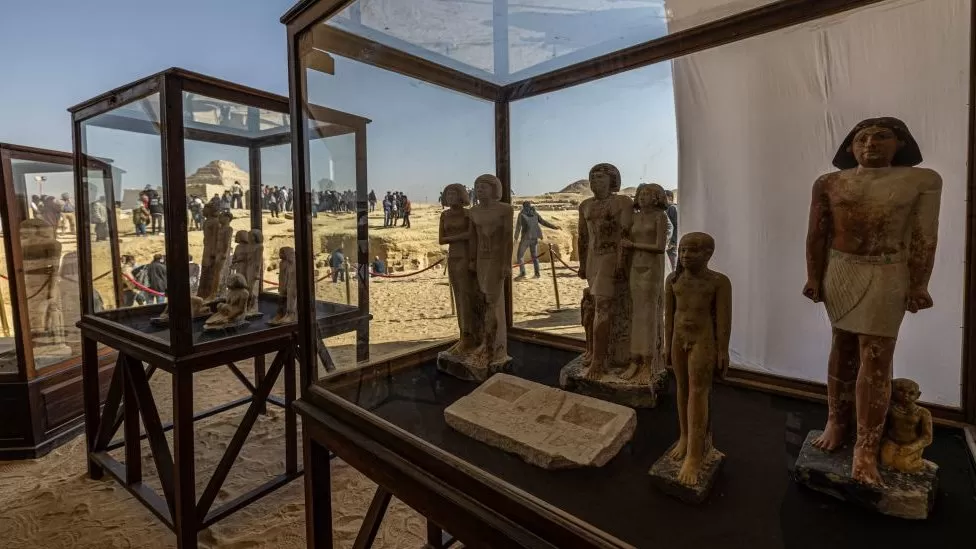Cairo, 1 February 2023 (GNP): One of the earliest and most complete non-royal mummy ever discovered in Egypt is the one that contains the bones of a guy by the name of Hekashepes. It was located at Saqqara, a burial site south of Cairo, down a 15 m (50 ft) shaft where three other tombs were also uncovered.
The owner of one tomb was a “secret keeper.” The enormous mummy discovered at the ancient necropolis is thought to be that of a priest, inspector, and overseer of nobles by the name of Khnumdjedef.
Another belonged to a man named Meri, a top palace official with the authority to carry out exclusive religious rites due to the designation of the secret keeper.
Fetek, a judge and author, is believed to have been buried in the other tomb, including several of what are claimed to be the biggest statues ever uncovered in the region. Pottery and other objects have also been discovered among the burials.
Also Read: Space rock Asteroid 2023 BU passes closer to several satellites
All of the finds, according to archaeologist and former Egyptian antiquities minister Zahi Hawass, date from roughly the 25th to the 22nd centuries BC.
Another archaeologist working on the site, Ali Abu Deshish, claimed that the discovery was significant since it established a connection between the monarchs and the local population.
Saqqara, a site honored as a UNESCO World Heritage Site, has been a functioning burial site for more than 3,000 years. More than a dozen pyramids, including the Step Pyramid, which is close to where the shaft containing the mummy was unearthed, are located there. Memphis was the site of the ancient Egyptian capital at the time.

The finding on Thursday comes just a day after specialists in the southern Egyptian city of Luxor announced that they had found a whole Roman residential city from the second and third centuries AD.
Also Read: Avatar: The Way of Water, fourth-highest-grossing movie
Researchers discovered homes, towers, and what they have dubbed “metal workshops” that contained pots, utensils, and Roman coins.
In recent years, Egypt has made a number of significant archaeological discoveries as part of efforts to resuscitate its tourism economy. The government anticipates 30 million visitors annually in 2028 to the Grand Egyptian Museum, which is finally scheduled to open this year after several delays.
However, some claim that Egypt’s government prioritizes media-grabbing discoveries over rigorous academic study in an effort to boost tourism.

